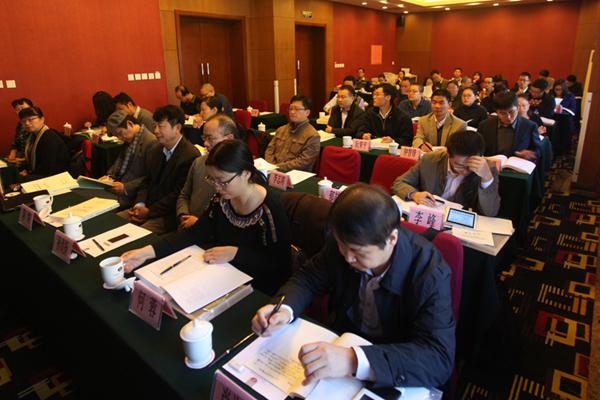From July 16th to 18th, China's Sociology Association organized a conference which focused on comfortable and prosperous standards of living while using new development ideas held in Lanzhou University.
This religious and sociological forum gathered scholars from various well-known universities in China, discussing the topic of religion freely and the ‘matter of faith’ during the forum. Because of this fact, this Religious and Sociological Forum has been accolated as the "Excellent Forum of the Year" for 3 consecutive years. Furthermore, China's Sociological Forum Administrative Committee has also approved the establishment of a formal "Religious and Sociological Committee".
ECNI Sociology recently reported that the person-in-charge of the forum, Professor Li Xiangping from Huadong Teaching University, opened the forum with a speech. He explained that the relationship between faith matter and religious principle and its connection to both individual and social perspective. Li points out that an individual's faith matter, stumbling on the organic connection with the system of religious principles, will not form the identities and value systems accepted in China. He also talked about how to close the public or societal gap between individual's faith matter and religious principles determining the path and quality of China's legalized societal and religious development approach.
In the discussing the topic regarding the control of both private and public religious affairs, Huang Jin from the School of Social Science in Sichuan provided us with an example. He used Province S as an example to dissect the current management struggles revolving around priorities, rationales, goals and systems of religious affairs' management. Among which is the confusion over priorities regarding public and private affairs which causes challenges for many. As a result, the management approach used by the government has picked up the wrong priories and unclear boundaries of responsibilities. They are not only throwing excuses with regards to refusing to execute national laws but also giving rise to management blind spots and grey areas. The consequences then arise either from the lack of protection and help rendered to legal activities or inadequate control over illegal practices, making it hard to establish freedom of religions. This confusion has also complicated the phenomenon of "religion shifting" in the country.
This forum also discussed other key topics such as religious practices online, the changing or unchanging folk religions, religious practices of the youth, Christianity's societal influence, etc. Other topics also touched on sociological studies regarding Christianity.
Regarding the discussion on religious practices of the youth:
Zhang Fengchu from Shanghai Teaching University compared 4 young white-collared Christians and deduce the following conclusions: Young Christians who belong to the "New immigrants" group have formed a stable and mutually beneficial connection with young local Christians. This connection is maintained through "prayers" and greatly reduces the materialistic element, which seems to be common elsewhere. Their value systems are built around "accumulating heavenly treasures" instead of pursuing selfish gains, facilitating the assimilation process of " new immigrants" in the cities.
Chen Hang from Beijing University performed an in-depth analysis on a house church catering to students from Beijing University. He pointed out that families in China are experiencing an era of "post-parenting control", rendering unlimited freedom to the youth as long as they don't overstep the loose boundaries remaining. This social phenomenon has posed challenges to house churches and mission work. As such, house churches have to enhance their believers' spiritual identities and re-align their inner faith back to God. Chen expressed that though the number of church goers is growing, this cell format formed under such compelling social phenomenon may not form a force powerful enough to push through societal transformation.
Han Hengqu from Zhengzhou University listed down two common models that the second generation Christians tend to comply with: the study model and the turning back model. Built upon this foundation, Han also expressed doubts and correction on several ideas regarding "social capitalism" and "study of the rationale".
Yang Linxia from Zhongyuan Technological University in Henan described the growing method of a university fellowship group through tapping on existing social capital and meeting its members' needs at the same time.
Different from systemizing Christianity, Xing Tingting from the University of Finance and Economics in Shanghai realized that some young adults in the city are obsessed with supernatural phenomenon such as Feng Shui, fortune telling, constellations and others. They are involved in such practices because of the ineffectiveness of secular truth in explaining issues occurring in the present time and sooth an individual’s prevalent anxiety.
Although the pursuit of supernatural power is a private practice, we need to view the issue from the social perspective and define one's identity and position in order to rationalize for one's individual issues.
With regards to the discussion on Christianity's societal influence, Huang Haibon from the School of Social Sciences in Shanghai has performed a random sampling survey on Christianity. He found out that contrary to public perception, Christian values actually drives one to trust its government more. Based on the CGSS 2010 data, Christian Faith also has led to increased willingness to give birth and increased the happiness index of individuals according to several scholars from Huadong University of Politics and Laws.
Huang stated that individuals who have religious beliefs are more willing to give birth than atheists. Moreover, Christians are more willing to give birth than people from other religions. As such, one's religious belief heavily influences one's desire to give births. Apart from religious factors, other factors such as population study, social and economic variables, as well as favoritism towards boys have also influenced people's desire to give birth. Scholars from Huadong University also find out the correlation between one's faith and happiness. In their study, faith enhances one's happiness. Furthermore, they discovered that people from Islamic or Christian backgrounds experience high happiness levels as compared to those from the Buddhist or folk religion sector.








